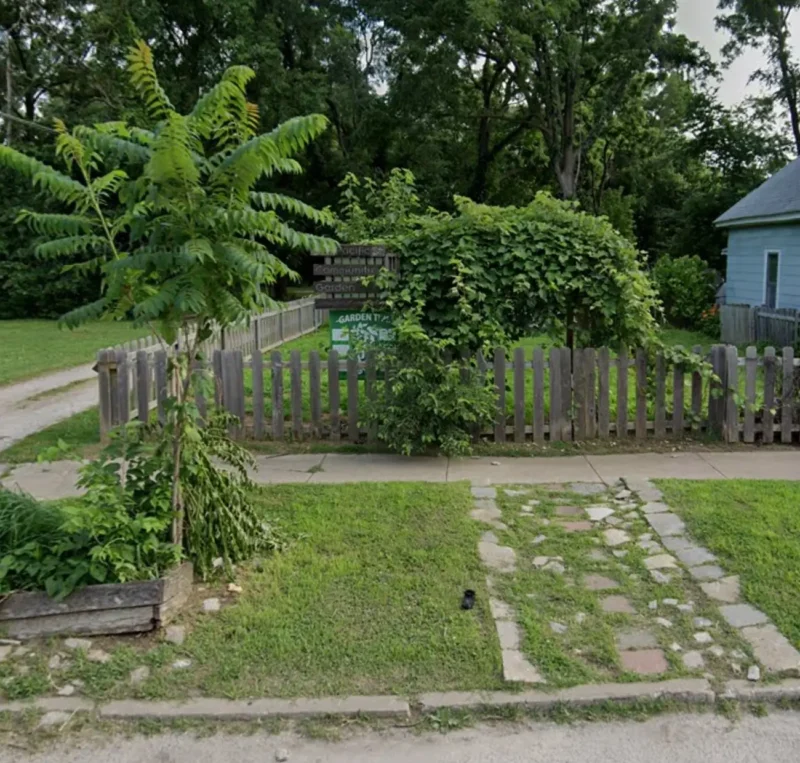Environmental Protection Agency Region 7 staff presented the City’s Brownfields Revolving Loan Program with a $1 million ceremonial check in August at Jordan Valley Park, itself a brownfields success story. The City’s Economic Vitality Department, which administers the brownfields programs, was notified of the competitive award in May. The grant is part of President Biden’s Investing in America agenda to help states, tribal nations, local governments and non-profit organizations assess and clean up polluted brownfield sites across the country. These investments through EPA’s Brownfields Multipurpose, Assessment, and Cleanup (MAC) Grant Programs and Revolving Loan Fund (RLF) Grant Programs will help transform once-polluted, vacant and abandoned properties into community assets, while helping to create good jobs and spur economic revitalization in overburdened communities.
Brownfields are properties whose redevelopment or reuse are complicated by potential contamination by lead, asbestos, petroleum or other hazardous substances. The City of Springfield’s Brownfields Program works to assess, clean up, and facilitate the redevelopment and reuse of brownfields within the city limits of Springfield by providing incentives for qualifying properties, including free Phase I and Phase II environmental assessments, cleanup planning, technical assistance and low-to-no interest loans and subgrants for site remediation.
Priority sites in Springfield
Properties adjacent to the GAP
The City has identified several priority sites for the loan program, including 12 dilapidated properties along South Douglas Avenue adjacent to the Grant Avenue Parkway currently listed for sale. These sites are prioritized to realize the vision of Forward SGF, the GAP redevelopment plan, and begin to regenerate disinvested center city neighborhoods. The Brownfields Revolving Loan Program will be marketed as loans to potential developers for remediation of suspected asbestos, lead based paint, and surrounding soil contamination. Existing City HOME Investment Partnership funds and Community Development Block Grant (CDBG) funding from the U.S. Department of Housing and Urban Development (HUD) can be leveraged with the Brownfields Revolving Loan Fund to target reinvestment in a variety of housing types, neighborhood commercial development and placemaking strategies that connect to the parkway and greenway trails. The properties are also within the GAP Redevelopment Area which will leverage real property tax abatement as an additional layer of incentive.
Pacific Community Garden projects
Another priority for the Brownfields Revolving Loan Program will be subgrants to the Pacific Community Garden projects at 813 and 819 E. Pacific St. Springfield Community Gardens received both lots through donation and are ready to move forward with a project that allows the community to grow food on the lots and then donate the produce back to the community. Lead and arsenic concentrations above acceptable levels have been identified in the soil that need to be addressed before moving forward. Future goals for the site are remediation of contaminated soils and a new market farm for production with a neighborhood processing pack shed and freezer.
Downtown commercial properties
The City has also identified two commercial properties in downtown Springfield.
The Newberry Building at 132 Park Central Square is currently for sale and is the final property on the square in need of rehabilitation. Multiple developers have shown interest in the property but based on rehab projects in surrounding properties and the age of the building there is likely to be lead based paint, asbestos, and mold within the structure. Leveraging of Brownfields Revolving Loan Funds, HOME and CDBG funding could provide potential developers an incentive package to redevelop the property as a mixed-use commercial and housing project leading to job creation and be an economic stimulus for the downtown square.
The second commercial building is the former Remington’s property at 201 S. Campbell. The current owner of the building has considered redevelopment but extensive rehab, likely asbestos, lead based paint and mold in the structure has prohibited the project from moving forward. Other developers have expressed interest in the building for use as a boutique bowling alley and entertainment venue. Leveraging of Brownfields RLF and commercial CDBG funding could be the catalyst for redevelopment that would lead to job creation and stimulate economic growth in the downtown area.
Job creation and expanded tax base
Anticipated outcomes from the EPA award include the creation of jobs through the redevelopment of the downtown properties that currently sit vacant but could be providing commercial spaces. Redevelopment of those sites will expand the tax base for Springfield, which relies heavily on sales tax for community services. The availability of brownfields loans and subgrants also allows the City to leverage other programs such as HOME and CDBG funds and Chapters 99, 353 and 100 tax abatement to create additional incentives to redevelopment of environmentally challenged properties, according to Amanda Ohlensehlen, the City’s director of Economic Vitality
“The South Douglas Avenue properties cover more than two acres of land. These properties, in their current state, are detriments to the public health of the surrounding area. Their redevelopment and reuse represent an opportunity to create sustainable and equitable housing in a new urban district and solidify investment on the edge of the Grant Avenue Parkway. The Pacific Community Garden parcels are .16 acres of contaminated soil that will be remediated, which not only improves the environmental health and welfare of a residential neighborhood, but can then be used to grow food for a low-income area and distribute produce throughout the neighborhood. The remediation of this market garden will minimize exposure to lead and contribute to connecting community through urban agriculture,” she added.
“Springfield has proven itself as a model community regarding its Brownfields Program and Integrated Plan. We have an extensive history of partnership with the EPA, which includes $8.5 million previously awarded in grants for brownfields assessment, clean up, revolving loan fund and job training programs,” said City Manager Jason Gage.


